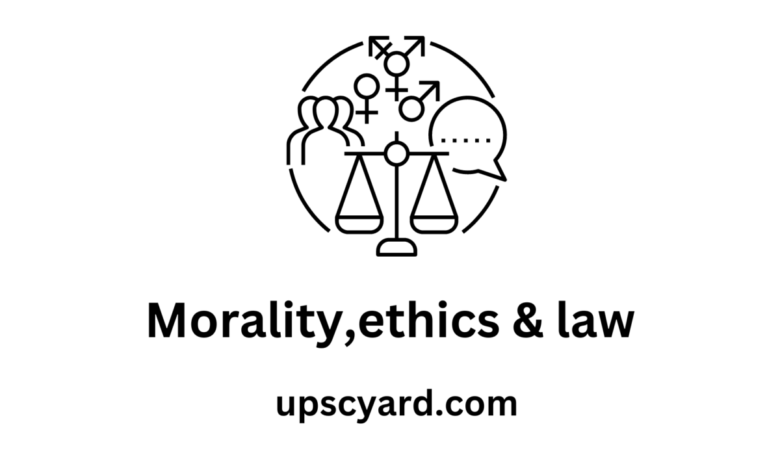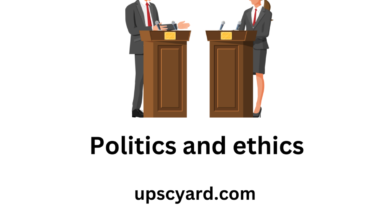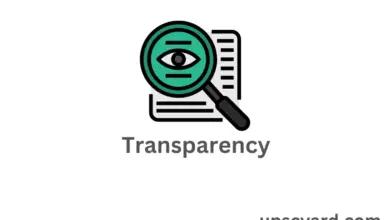
Morality, Ethics & Law
Different individuals may refer to their personal ethics or a specific set of morals when discussing their values and principles, while at the same time, all members of a society are subject to the same set of laws. It is common for these concepts to be mistakenly interchanged or confused with one another.
Understanding the distinction and interplay between these concepts is crucial, as they can sometimes come into conflict. When the law clashes with our personal values or a moral framework, we must make a decision. However, in order to navigate such situations effectively, it is essential to discern and differentiate between the law, personal values, and moral systems.
Ethics
Ethics, as a discipline within philosophy, seeks to address the fundamental question of “What should I do?” It involves a process of thoughtful contemplation, where individuals shape their decisions based on their values, principles, and purpose, rather than acting out of habit, societal norms, or self-interest.
Our values, principles, and purpose serve as guiding factors in determining what is good, right, and meaningful in our lives. They act as a reference point when considering various possible courses of action. Consequently, an ethical decision is one that stems from a reflective consideration of our core beliefs and aligns with them.
While every individual possesses the ability to reflect and discern their own understanding of what is good, right, and meaningful, throughout history, different groups have come together under various sets of values, purposes, and principles. Christians, consequentialists, Buddhists, Stoics, and other philosophies offer diverse responses to the question of “What should I do?” Each of these perspectives represents a distinct “morality.”
Educational institutions play a vital role in instilling values by focusing on enhancing the ethical competence of children, as well as fostering their social sensitivity and awareness. It is essential to prioritize efforts in these areas to ensure the holistic development of students.

Morality
Morality holds significant value for many individuals. For numerous people, it is not feasible to invest extensive time and undergo specific training to deeply reflect on the kind of life they aspire to lead, considering the vast array of combinations of values, principles, and purposes. In such cases, it proves beneficial to have access to a coherent and consistent moral framework that has been refined over time and can be readily applied in their daily lives.
It is worth noting that many individuals inherit their morality from their family, community, or culture. It is uncommon for someone to actively seek out different moral frameworks that closely align with their personal beliefs. Often, this process occurs unconsciously. However, a challenge arises when we inherit a pre-established answer to the question of how we should live, as it is possible to adopt it without critically evaluating whether it truly satisfies our needs and convictions.
Throughout our entire lives, we may find ourselves adhering to a moral system that, had we been given the opportunity to contemplate, we may have rejected in part or entirely.
Maintaining high levels of commitment and efficiency heavily relies on morale. To provide precise definitions, it’s important to note that motivation relates to individuals, while morale pertains to groups.

F.A.Q.
The term “moral” can be used as both an adjective and a noun, encompassing the principles of distinguishing between what is good and bad. On the other hand, “morale” solely functions as a noun, denoting the mental state characterized by confidence and enthusiasm experienced by an individual or a group
Law
The law and morality are distinct from each other. While morality relates to personal ethical beliefs, the law, particularly in democratic nations, aims to establish a framework that allows individuals to live according to their own ethical values. Its purpose is to create enforceable standards of behavior necessary for the functioning and success of a community, ensuring equal treatment for all individuals.
Compared to ethics and morality, the law has a narrower focus. It may remain neutral on certain matters that ethics and morality extensively address. For instance, deciding whether to inform a competitor about a client’s reputation for non-payment of invoices may not have a legal implication, but our personal notions of what is good and right will guide our judgment in such situations.
There is a tendency to conflate the law with ethics, assuming that fulfilling legal obligations equates to being ethical. However, this is incorrect on two fronts. Firstly, the law establishes a basic standard of behavior necessary for the functioning of social institutions and protects fundamental consumer rights, but ethical considerations may require going beyond legal requirements in certain circumstances.
Secondly, there are instances when abiding by the law may conflict with our personal ethics or morality. For example, a doctor may be compelled to perform a procedure they deem unethical, or a public servant may believe it is their duty to disclose classified information to the press. Some philosophers argue that an individual’s conscience holds greater authority than any law, suggesting that merely adhering to the letter of the law is insufficient without ethical reflection.
Example of law and ethics relationship
Sections 363 (kidnapping), 366A (Procuration of minor girl)

An illustration of the law influencing ethics. Ethics fundamentally pertains to the regulation of individuals for the betterment of society.





